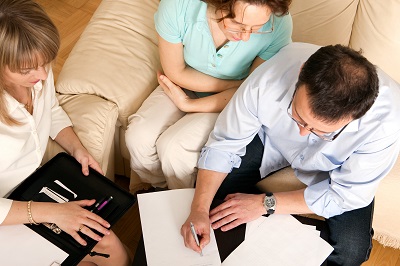- Calls to this hotline are currently being directed to Within Health or Eating Disorder Solutions
- Representatives are standing by 24/7 to help answer your questions
- All calls are confidential and HIPAA compliant
- There is no obligation or cost to call
- Eating Disorder Hope does not receive any commissions or fees dependent upon which provider you select
- Additional treatment providers are located on our directory or samhsa.gov
When Your Husband Has an Eating Disorder

Contributor: Crystal Karges, MS, RDN, IBCLC Special Projects Coordinator at Eating Disorder Hope
Watching someone you love struggle with an eating disorder can be overwhelming and confusing. While greater awareness has helped break much of the stigma and shame that surrounds eating disorders, mental illness is never an easy thing to face. One particular stigma that is especially painful is the notion that men do not or should not struggle with an eating disorder.
Men who may suffer with an eating disorder can likely attest to the obstacles they face in light of the many stereotypes that surround these mental illnesses, and this can prove as a roadblock to resources needed for treatment.
The Isolation of Dealing with an Eating Disorder – For Both Spouses
Having a spouse who is struggling with an eating disorder can be lonely and isolating experience. If your husband or partner is dealing with an eating disorder, you may be unsure as how to best support them or what your role in their recovery process may be. You may also find yourself facing your own questions or challenges that come with having a husband or partner with an eating disorder.
Perhaps you have found yourself asking, “Why does struggle with something as simple as eating”, or “Why did my husband develop an eating disorder?” One of the most painful questions you may be asking yourself is if you had any role in the development of your husband’s eating disorder.
An Eating Disorder Is No One’s Fault

Know that self-blame cannot be a positive part of your husband’s recovery, and you can empower yourselves by looking less for the cause and more towards treatment.
Getting Specialized Support
Another important aspect of recovery is enlisting the help of professional and specialized support. You should not shoulder your husband’s recovery, though your support and guidance will be essential. Marriage and family therapy may be a helpful aspect of your husband’s recovery journey.
Remember that you are not alone through this journey. Finding support along the way can help encourage you throughout the process.
Community Discussion – Share your thoughts here!
Have you supported your husband or partner though eating disorder recovery? What resources were helpful to you through the recovery process?
Last Updated & Reviewed By: Jacquelyn Ekern, MS, LPC on June 2nd, 2015
Published on EatingDisorderHope.com
